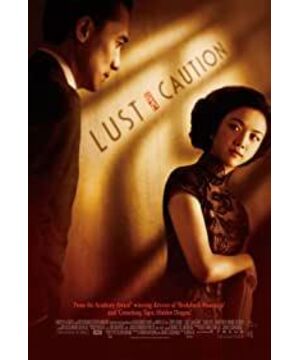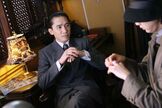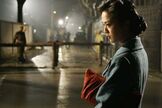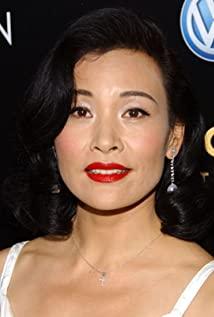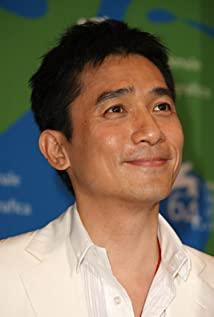One, Ruoshui 3000, how to take this scoop?
Although I am very busy now, but after hesitating, I went to see Lust and Caution last weekend and started writing this film review. Ang Lee is my favorite Chinese director and I would like to take a moment to discuss his work. His films, from the early father trilogy, to Crouching Tiger, Hidden Dragon, made what I wanted to see. Several Chinese directors, the early Zhang Yimou is undoubtedly a sociologist, Chen Kaige was once a poet, and Ang Lee himself fits my imagination and yearning for Chinese literati. This is not only because of his outwardly gentle image and inner sturdy character (his own words), but more importantly, his works vividly express the inherent contradictions in the wandering Chinese and their culture, and thus also It expresses some characteristics of traditional Chinese culture. I have not seen this kind of expression and thinking in other directors.
I've seen his interviews, and I know all kinds of criticisms against him, generally saying that he doesn't understand Chinese culture as well as the other two directors, because Ang Lee lives in North America. However, in my opinion, there are various ways to understand and express a culture, one of which is to be sharp and clear in the cramped environment of a different culture. To understand a culture, although family experience is important, it is also a good way to get out and look at it from a distance. Only in this way, the experiencer himself needs to experience a more painful self-identification struggle. In an interview, Ang Lee said something like this. He said that I came from the West to make Chinese culture, and if I did it well, it was called both sides. But no matter whether it is done well or not, an unavoidable question that cannot be given a perfect answer is the question of survival and identity in the midst of various cultures. who I am? Where am I going? I think this is Ang Lee, as a director from Taiwan, the most difficult journey in his heart when he was filming in North America and introducing Chinese culture. Each of his works is full of different cultures, or the tension brought about by the collision between different forces, and the helplessness of the protagonist when faced with these tensions. At the end of "Pushing Hands", the two old people live together in Chinatown in the United States. Where is the future? This should be a question for young people, but it is dramatically put in front of the elderly. We can see similar clues in The Wedding Banquet, Crouching Tiger, Hidden Dragon and Brokeback Mountain. After watching his films all the way, you can find that they are actually talking about one thing, or they are looking for an almost impossible answer: Who am I? Where am I going? Importantly, this is not only a problem of Ang Lee himself, but also of the traditions of Chinese intellectuals who are often caught between various cultural forces. It is at this point that Ang Lee's own thinking has universal significance in Chinese culture.
Finally arrived at this "Lust and Caution", it is no exception. After watching it, I think this may not be the movie Ang Lee wants to make the most, but it should be the movie he must make. This is his destiny, and this destiny was born when he was filming his father's trilogy, and formed when he was filming Crouching Tiger, Hidden Dragon. We can certainly understand this film in Ang Lee's film sequence and discuss it in relation to Ang Lee's own problems. To put it boldly, we can compare Lust and Caution with Crouching Tiger, Hidden Dragon, and even treat them as companions that echo each other. In a way, they are discussing the same question, but nearly a decade later, Ang Lee has given a different answer. "Crouching Tiger, Hidden Dragon" can be seen as a traditional Chinese literati's imagination of the world, but in "Lust and Caution", when this imagination becomes reality, it finds despair.
Two, is it okay to not give up?
Everyone goes to see the movie, and I don't want to simply retell the story. Although the mainland version will be cut for 7 minutes, Ang Lee said that he cut it himself, so it should not affect the overall situation. The film is set in Hong Kong and Shanghai in the middle of the last century. Several of these symbolic signs include the Anti-Japanese War, the Wang puppet regime, and the Nationalist government. The hero Mr. Yi, the dignitary of the Wang puppet regime, and the heroine Wang Jiazhi, I don't think she can even define who she is, right? If she started from the beginning, she should be an ordinary person.
At the beginning and the end of the story, Wang Jiazhi has two scenes each. Although she spent most of her time acting from beginning to end, pretending to be Mrs. Mai to seduce Mr. Yi, these two performances were still very interesting. The first scene was in a university in Hong Kong. Influenced by classmates with anti-Japanese ideas, she joined a club, discovered her talent for acting, and played the sister of a sacrificed anti-Japanese soldier in a play , through his own performance, to call on the audience to rise up to save the country. Her performance is truly touching, engaging, and touching. In the play, she becomes the concrete image and symbol of the country's ruin and the collapse of the family, and a symbol of the fact that the nation is in danger. In this symbol, there is only the country and the nation, there is no personal relationship between children and children, there is only righteousness, and there is no individual. In the play, she is not herself, she is the representative of thousands of Chinese people, there is no love between her and the anti-Japanese fighter, and their topics are only the hatred of subjugation and national salvation. Her performance was so wonderful and the drama club's performance was so successful that fighting against Japan and saving the country really began to become the meaning of her life and life, and it became the most important reason why she decided to join the assassination of Mr. Yi. It's just that such a patriotic act, although the price is high, has little effect in the end - the only effect is to kill Lao Cao, but the bloody scene in it made her have to flee on the spot. She had no way to face the bloody scenes in the name of the country and the nation, but after fleeing, her life and life had no sustenance. Later, she moved to Shanghai. The same is true, she became an ordinary person until Once again met her former accomplice classmates.
Wang Jiazhi said she decided to join the action again because she felt it was a "thing". This kind of thing can give her life a sustenance, so that her life will no longer be plain like water, go with the flow, and no longer slowly fall into despair like falling into quicksand as time goes by. She needs sustenance, and everyone needs sustenance in order to live, or live happily. More importantly, this time she has an organization, and the will of the country begins to become clear, and it is no longer the imagination of a small group during the summer vacation. When she acted again, she once again became the symbol and representative of the will of the country, and this time the game was more real. Different from the performance in the drama, her performance as a national symbol this time has the exact opposite of its meaning: the seduction of lust. The tension of human nature begins to be expressed in the paradox of this symbol: Wang Jiazhi, as the most powerful force of a country and culture, that is, as a representative of the government, must use her most private and secret body and emotions to communicate with her. Another representative of the hostile government, Mr. Yi, dealt with. In this process, Wang Jiazhi was neither Wang Jiazhi nor Mrs. Mai. who is she? She doesn't know it herself.
She sees Mr. Yi again, and she needs to lure the target with lust. However, unlike when she was in Hong Kong, she had already begun to look forward to it. In fact, part of the reason she participated in this event was because she could meet Mr. Yi. The story becomes intriguing from here. Ang Lee revealed the emotional progress between the two through the different structures of the three sex scenes. This point has been pointed out by many film critics and will not be repeated here. In this process, as Ang Lee expresses in the second sex scene with the tangled bodies of two people, the mission of the state and the emotions of the individual begin to absurdly overlap. The body in the sense of modern sociology began to appear at this time, Wang Jiazhi's private emotions burst out violently, and she fell in love with Mr. Yi. At this time, we saw her second scene, which was the part of "The End of the World" that she sang for Mr. Yi in a Japanese restaurant. This is a complete love song, looking for soulmates in the ends of the earth, the little sister sings and plays the piano, the little sister is like a thread and a needle, and they are inseparable when they are worn together. In this performance, there is no national righteousness or national sentiment, only the personal feelings of children and me. The meaning of Wang Jiazhi's life has completely shifted from national to private, and Mr. Yi "got into her heart". This is the exact opposite of the symbolic meaning she represents. She was cornered and had to choose between sex and quitting. Such choices occur in everyday life, but in her case it reaches the extreme: either Mr. Yi's life or the organization she represents. When she joined in, she wanted to look for some hope, but she caught despair. Who is she, how does she think, how does she act, who cares?
This movie also has a secondary line, which is Mr. Yi's emotional experience. From Mr. Yi's point of view, is Wang Jiazhi not a lure of lust? Wang Jiazhi committed lust, and so did Mr. Yi. As a symbolic representative of the Wang puppet regime, from the moment he appeared, he represented a more thorough metaphysical national significance than Wang Jiazhi. In his interaction with Wang Jiazhi, he also began to discover his own emotions. Three sex scenes clearly show his transformation from a state machine to a man. But neither his symbolism nor Wang Jiazhi's symbolism allow any real emotional existence between them. Likewise, no one, including his subordinates, will care about who he is, how he thinks, and how he acts. Since no one cares, can we just be ourselves? Can you ignore those big meanings and emotions, just love the people you want to love, do what you want to do, and live the life you want? The answer is obviously no. Both organizations are concerned only with the outcome of things. In this result, no one exists. Here, another bigger paradox appeared. The questions mentioned above are exactly the questions raised by Zhang Ailing, the author of the novel. She raised such questions and wrote such novels in response to those who criticized her during the Anti-Japanese War when she only cared about the situation and did not care about the danger of the nation. In her novels, the answer is contradictory, even no. However, after a few years, the things that continue to exist and can constantly remind us of the fate of the nation's peril are not the slogan literature that has long since disappeared, but it is precisely this kind of retort at the extreme point of contradiction.
At the end of the film, Wang Jiazhi and her classmates were shot. I don't see regret in her last eyes. Mr. Yi, who never goes to the dark, sits in the dark and leaves, leaving behind a wrinkled pure white sheet. How about quitting, what about not quitting?
Three, the fragile Hulk?
Crouching Tiger, Hidden Dragon is a more complicated film. When I have the opportunity in the future, I will write a special review of the film, and I will only talk about one of them here. At the beginning of "Crouching Tiger, Hidden Dragon", when Li Mubai told Yu Xiulian about his experience in retreat, the whole movie started to tell the story with the precept as an introduction. Li Mubai came out of the ring. He originally wanted to abstain from the color of the world, but in the end he had to relapse. He was confused by the rules of the rivers and lakes and his own emotions. He could not break the ring with Yu Xiulian, and could not be tempted by the Qingming Sword, but he was obsessed with Yu Jiaolong unconsciously. Yu Jiaolong wants to break the precepts of her father and officialdom culture, to find freedom, to find her beauty in the world, to find herself, or to be herself, but instead she loses herself after breaking the precepts. At the end of the two stories, both Li Mubai and Wang Jiazhi died as a result of the relapse. Li Mubai died in the grievances of the Jianghu faction, and he was very similar to Wang Jiazhi. The difference is that Li Mubai can finally die in the arms of the person he loves, and there is some hope for the choice to break the precept. Nearly ten years later, Wang Jiazhi finally died under Mr. Yi's hands, and Mr. Yi could only hold back himself. tears, and told his subordinates that the ring was not his own. The ending of the relapse changed from hope to despair. I don't know if this means that Li An's mood has changed in the past ten years? Chinese living in a foreign land, mixed in today's political situation, how to choose between upholding their own traditions and adapting to the local society, how to face their own identity, and answering questions such as who am I, are not only Ang Lee's own problems, It is also the problem of traditional Chinese literati insisting on their own principles and adapting to social culture.
When I saw the news about this movie, I saw that Ang Lee was struggling to deal with the entertainment reporters who were asking boring questions, and I thought that Huang Qiusheng said that most of the entertainment journalists were illiterate, and then I saw Ang Ang constantly explaining The meaning of the color word in the coloring ring, when I saw his tears in Yangmingshan's food and nourishment house during the Mid-Autumn Festival, I felt that he was not the Hulk he photographed himself. No matter how far and how high, he is still alone, even deep in the quagmire, unable to find peace.
The presence of Li An is the happiness of the Chinese people, he can provide us with rich cultural feasts one after another; but it is also our pain: his cooking skills are too superb, and he can put his own sorrow into his food, so that the Although it is beautiful, it is like a bait, with a hint of sharpness that makes it difficult for people to enjoy.
View more about Lust, Caution reviews


